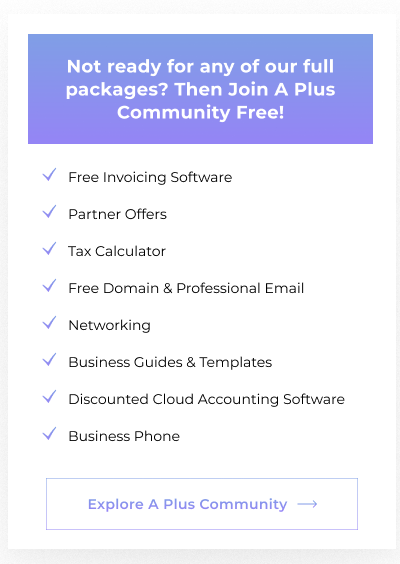 Get 30% off our services for the first 6 months when you sign up one off our Pre-Build or Bespoke Packages Get Started
Get 30% off our services for the first 6 months when you sign up one off our Pre-Build or Bespoke Packages Get Started Starting a new business? Get 50% off our super accountancy services for 6 months! Register a Business
Starting a new business? Get 50% off our super accountancy services for 6 months! Register a Business Get 30% off our services for the first 6 months when you sign up one off our Pre-Build or Bespoke Packages Get Started
Get 30% off our services for the first 6 months when you sign up one off our Pre-Build or Bespoke Packages Get Started Starting a new business? Get 50% off our super accountancy services for 6 months! Register a Business
Starting a new business? Get 50% off our super accountancy services for 6 months! Register a Business Get 30% off our services for the first 6 months when you sign up one off our Pre-Build or Bespoke Packages Get Started
Get 30% off our services for the first 6 months when you sign up one off our Pre-Build or Bespoke Packages Get StartedAccounting & Tax
Statutory Accounts
Self Assessment Tax Return
Bookkeeping
Vat Returns
Payroll
Dormant Accounts
Management Accounts
Outsourced Finance Team`
When we act as your outsourced finance function, this can include support services, such as: Real-time bookkeeping; Sales invoicing; Credit control.
Unsure which service you need?
Speak to the one of our expert accountant, to help you find what you need for your business.
By Business Sector
E-commerce
Start-ups
Small Business
Contractors
Freelancers
Professional Services
Technology Companies
Outsourced Finance Team`
When we act as your outsourced finance function, this can include support services, such as: Real-time bookkeeping; Sales invoicing; Credit control.
Unsure which service you need?
Speak to the one of our expert accountant, to help you find what you need for your business.

How to Pay HMRC
View artical
Onboarding & KYC
View artical
Starting a Business
View artical

Upcoming tax dates
Deadline for submitting a P46 (Car) for the quarter ending the 5th of July
7/09/2023
urgent
Deadline for submitting a P46 (Car) for the quarter ending the 5th of July
7/09/2023
Notice
Deadline for submitting a P46 (Car) for the quarter ending the 5th of July
7/09/2023
Reminder
Call us now
We aim to answer calls within 30 seconds
Monday to Friday
9.30 AM to 5.30 PM
























